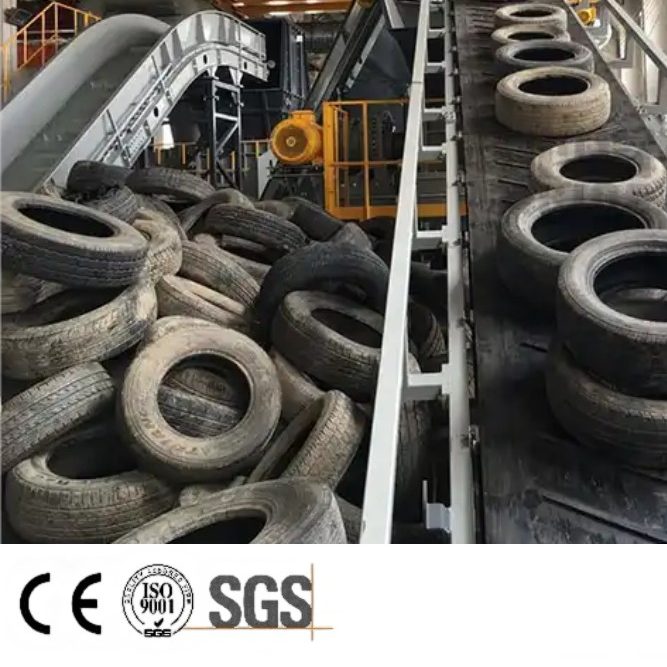Tire Recycling: How Shredders Power the Rubber Recovery Industry
Tire waste has become a significant environmental issue worldwide, with millions of tons of discarded tires generated each year. These tires are not biodegradable and can pose serious risks to ecosystems, landfills, and even human health when improperly disposed of. As the demand for sustainable waste management solutions grows, tire recycling has emerged as a key industry—and at the heart of this process are industrial shredders.
Modern tire recycling facilities rely on high-torque, heavy-duty shredders to process used tires into smaller, manageable pieces. The initial shredding phase typically reduces whole tires into strips or chunks, which are then further granulated and separated into rubber, steel wire, and textile fibers. Without this first-stage shredding, downstream processing would be inefficient, inconsistent, and costly.

Industrial tire shredders are designed to handle the specific challenges posed by tires: thick rubber, embedded steel wires, and high elasticity. Advanced machines use hardened blades, reinforced shafts, and hydraulic drive systems to ensure continuous, stable operation even under tough working conditions. Some shredders also feature automatic reverse and anti-jam functions, improving efficiency and reducing wear and tear.
Recycled tire rubber has a wide range of applications, including road paving (as rubber asphalt), playground surfaces, fuel for cement kilns, insulation materials, and even shoe soles. The profitability of the tire recycling industry heavily depends on the ability to consistently produce clean, uniform output—which starts with a reliable shredding process.
In recent years, many countries have introduced policies banning landfilling of whole tires, further accelerating demand for tire shredding systems. Additionally, tire manufacturers are under growing pressure to close the loop by supporting end-of-life tire recycling programs. This trend is driving both government and private investment into recycling plants equipped with modern shredders.
For businesses entering or upgrading in the tire recycling industry, selecting the right shredder is critical. Factors such as capacity, output size, blade durability, and system automation all play a role in long-term success. A well-chosen machine not only reduces operating costs but also improves product quality and compliance with environmental standards.
As environmental awareness continues to rise, and as rubber demand shifts toward sustainable sources, industrial shredders will remain essential in transforming used tires from a pollution problem into a valuable raw material. Companies that invest in efficient, high-quality shredding solutions today are laying the foundation for profitable, future-ready recycling operations.



